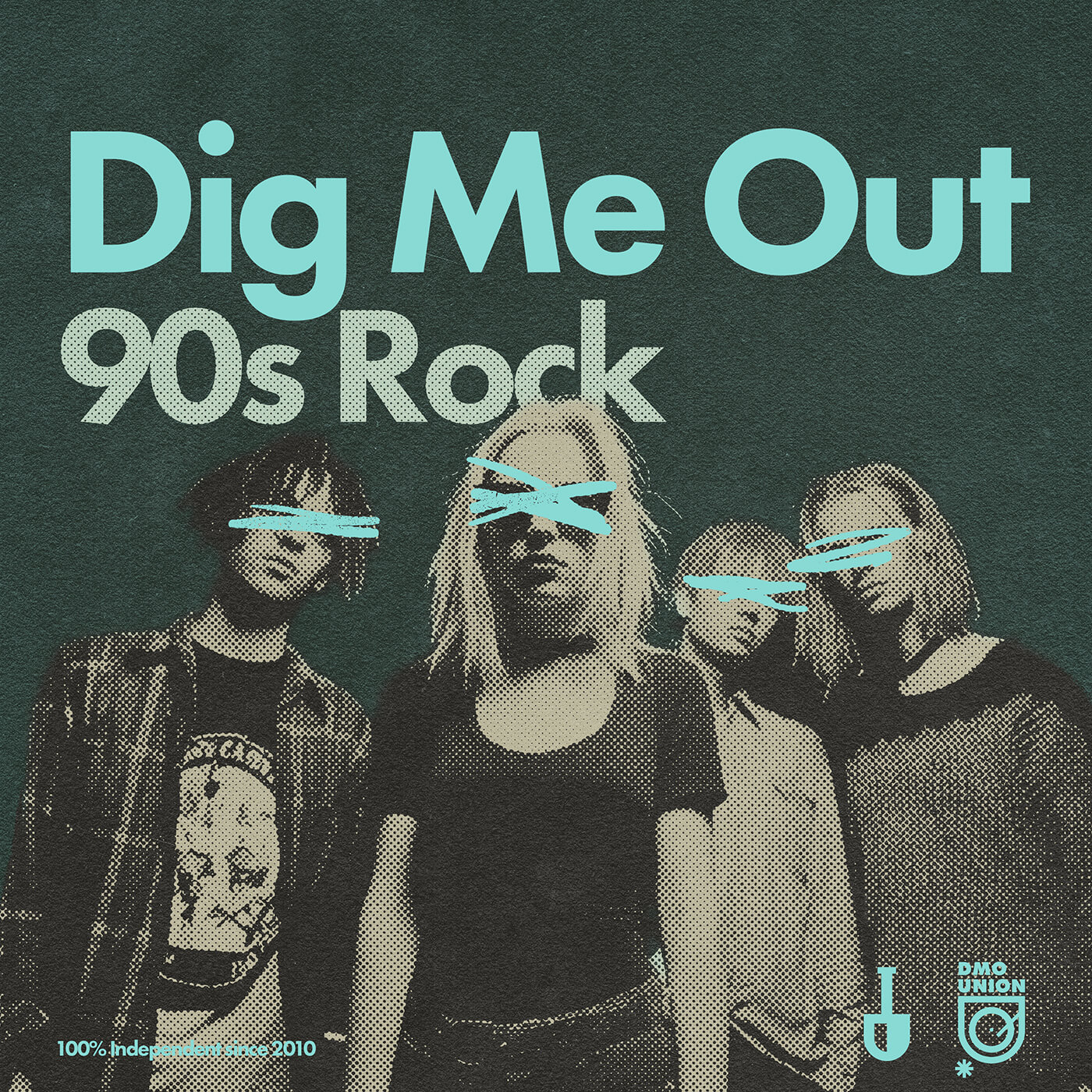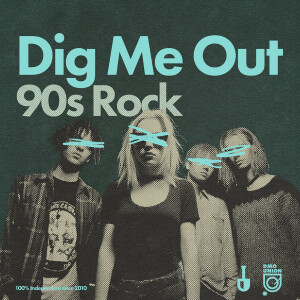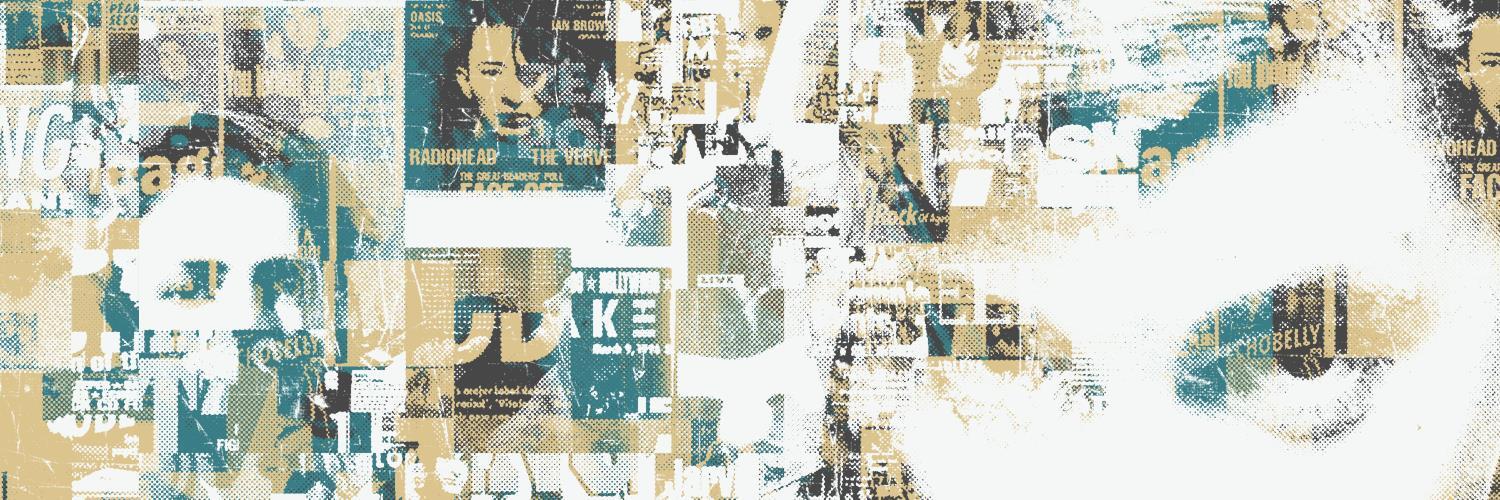
1.3M
Downloads
786
Episodes
Step back in time to the heart of the 1990s, the last great decade of rock music. We’re your weekly time machine to the era of grunge, alternative, indie rock, emo, Brit-pop, shoegaze, power pop, and post-punk. Our journey includes in-depth album reviews, insider interviews with key figures, and comprehensive cultural discussions. ’Dig Me Out: 90s Rock’ offers a deep dive into the music that defined a generation, providing a diverse range of sounds and stories that continue to influence artists today. What sets our podcast apart is our community of passionate listeners. You choose the artists, albums, and topics we explore, making ’Dig Me Out: 90s Rock’ a truly collaborative experience. Join us as we celebrate the unparalleled creativity and cultural significance of 90s music. If you’re a Nirvana, Built to Spill, Elastica, or Radiohead fan or fascinated with how the 90s impacted the sound of your favorite 80s artists, ’Dig Me Out: 90s Rock’ is your go-to podcast. Subscribe now and become part of a community that adores the last great decade of rock music. Let’s relive the 90s together!
Episodes

3 hours ago
3 hours ago
For Him and the Girls, the debut album by Canadian singer-songwriter Hawksley Workman, is an eclectic blend of glam rock, cabaret, and indie pop. Recorded largely in his home studio, the album revels in his uniquely quirky and theatrical style. Songs like “Tarantulove” and “Safe and Sound” feature lush arrangements, dramatic tempo shifts, and playful yet poignant lyrics that shift between earnest and odd. Lo-fi production adds raw intimacy, complementing the unconventional approach.
Songs In This Episode
Intro - Bullets
17:05 - Maniacs
20:37 - Don't Be Crushed
23:07 - No Sissies
27:33 - Tarantulove
39:34 - Baby This Night
Outro - Bullets
Support the podcast, join the DMO UNION at Patreon.

Tuesday Jun 24, 2025
The Connells - One Simple Word | 90s Album Review
Tuesday Jun 24, 2025
Tuesday Jun 24, 2025
One Simple Word, the fourth studio album by The Connells, showcases the band’s melodic southern jangle pop sound with a more polished and introspective tone. While not a commercial blockbuster, the album scored with critics and college radio listeners thanks to catchy but not overly sugary melodies that sound like attempts at a mainstream radio hit. Lush guitar interplay and heartfelt lyrics highlight their knack for emotionally resonant songwriting without leaning into melancholy.
Songs In This Episode
Intro - Stone Cold Yesterday
20:27 - Speak To Me
25:04 - Get A Gun
31:32 - Too Gone
36.21 - What Do You Want?
Outro - Take A Bow
Support the podcast, join the DMO UNION at Patreon.

Tuesday Jun 17, 2025
Underworld - Second Toughest in the Infants | 90s Album Review
Tuesday Jun 17, 2025
Tuesday Jun 17, 2025
Blending progressive house, techno, and ambient, the 1996 album Second Toughest in the Infants is Underworld’s ambitious follow-up to their breakout album Dubnobasswithmyheadman. Crafted with expansive, hypnotic soundscapes, tracks like “Pearl’s Girl” and the multipart suite “Juanita/Kiteless/To Dream of Love” highlight their exploration of rhythm and texture, while Karl Hyde’s cryptic, stream-of-consciousness lyrics add a surreal and poetic layer to the music.
Songs In This Episode
Intro - Confusion the Waitress
16:28 - Stagger
19:26 - Juanita : Kiteless : To Dream of Love
23:34 -Banstyle/Sappy's Curry
27:06 - Rowla
Outro - Pearls Girl
Support the podcast, join the DMO UNION at Patreon.

Tuesday Jun 10, 2025
Foreigner - Surviving the 90s
Tuesday Jun 10, 2025
Tuesday Jun 10, 2025
In our third installment of Surviving the 90s, we’re revisiting one of the arena rock powerhouses of the late '70s and early '80s — Foreigner. Known for a string of massive hits like "Cold as Ice," "Hot Blooded," "Urgent," "Juke Box Hero," and the chart-topping ballad "I Want to Know What Love Is," Foreigner dominated radio and MTV in their prime. Albums like Double Vision, Head Games, and 4 went multi-Platinum, cementing their legacy. But as the musical landscape shifted in the 90s, the band faced lineup changes and a changing industry. Though new material was scarce, they continued touring and remained a fixture on classic rock airwaves. We revisit their biggest hits, their activity in the 90s, and try to determine: did Foreigner thrive, adapt, or fade during the decade?
Songs In This Episode
Intro - Feels Like The First Time
30:29 - Headknocker
34:03 - Blue Morning, Blue Day
47:29 - Double Vision
50:52 - Moment of Truth
56:34 - Lowdown and Dirty
1:10:54 - Big Dog
1:19:35 - White Lie
Outro - Juke Box Hero
Support the podcast, join the DMO UNION at Patreon.

Tuesday Jun 03, 2025
Ground Components - An Eye for a Brow, a Tooth for a Pick | 00s Album Review
Tuesday Jun 03, 2025
Tuesday Jun 03, 2025
An Eye For A Brow, A Tooth For A Pick, the 2006 debut album by Australian band Ground Components, blends elements of garage, punk, and soul that fits in nicely with the garage rock revival of the early '00s. Featuring a mix of aggressive punk-ish guitar riffs, driving and boogie rhythms, and horn arrangements give the album a unique sound compared to contemporaries. All that is a playground lead for lead singer Joe McGuigan, who yelps and screams with soulful veracity throughout the record.
Songs In This Episode
Intro - Hands In The Air
15:27 - Stale Thoughts
20:43 - On Your Living Room Floor
28:01 - Head In The Sand
38:23 - Fistful of Dallas
Outro - Coming In from All Angles
Support the podcast, join the DMO UNION at Patreon.

Tuesday May 27, 2025
Buffalo Tom - Birdbrain | 90s Album Review
Tuesday May 27, 2025
Tuesday May 27, 2025
While their debut album tagged them as Dinosaur Jr Jr thanks to loud guitars and J. Mascis behind the board, Buffalo Tom's second album, Birdbrain, builds on the raw, guitar-driven sound of their debut but with more mature songwriting and production. Produced again by J Mascis of Dinosaur Jr. with Sean Slade, the album emphasizes emotional intensity over polish, with songs like "Birdbrain" and "Enemy" showcase the band’s knack for combining distorted guitars with introspective lyrics. Though not a commercial hit, the album helped solidify Buffalo Tom’s place in the early '90s indie rock scene and shows a significant step in the band’s evolution toward the more refined sound of their later work.
Songs In This Episode
Intro - Fortune Teller
17:23 - Birdbrain
23:07 - Crawl
26:26 - Heaven
29:40 - Skeleton Key
Outro - Guy Who Is Me
Support the podcast, join the DMO UNION at Patreon.

Tuesday May 20, 2025
Non-Intentional Lifeform - Uisce | 90s Album Review
Tuesday May 20, 2025
Tuesday May 20, 2025
Uisce (pronounced "ish-ka," the Irish word for "water") is the sole full-length album by Australian band Non-Intentional Lifeform (N.I.L.), released in 1997 by Roadrunner Records. Formed in Perth in 1995, N.I.L. was known for their eclectic fusion of hard rock, thrash metal, post-punk, rap, and funk. Energetic and unpredictable, the album is an inventive blend of genres anchored by stellar musical performances that sound like a bridge between rap-rock pioneers Rage Against The Machine and Faith No More, and late 90s alternative and nu-metal of System of a Down and Incubus.
Songs In This Episode
Intro - Living or Existing
21:36 - Farm Animals
23:37 - Sister Julienne
33.22 - Spilling All Over The Floor
Outro - Living or Existing
Support the podcast, join the DMO UNION at Patreon.

Tuesday May 13, 2025
The Lee Harvey Oswald Band - Blastronaut | 90s Album Review
Tuesday May 13, 2025
Tuesday May 13, 2025
A fusion of punk, garage, and noise rock, the 1996 album Blastronaut by The Lee Harvey Oswald Band is a bombastic, high energy record drawing upon 70s David Bowie, classic rock, and the Stooges. Confrontational and darkly humorous, the band leans into a satirical, sometimes absurdist tone, reflecting a punk ethos while incorporating elements of Southern culture and psychedelic weirdness. The alias-driven mystique and off-kilter presentation of the band begets an aggressive, theatrical style that may have been out of touch with the mid-1990s, but is worth revisiting.
Songs In This Episode
Intro - Rocket 69
12:27 -The Greatest Man Who Ever Walked the Face of the Earth
16:50 -Green Like the Color of Blood
18:59 - Panic in Hanoi
32:37 - Brontosaurus
35:14 - The Scorpio Letter
Outro - Morphodite
Support the podcast, join the DMO UNION at Patreon.

Tuesday May 06, 2025
Social Distortion - Social Distortion | 90s Album Review
Tuesday May 06, 2025
Tuesday May 06, 2025
The 1990 self-titled album by Social Distortion marked a significant turning point for the band, showcasing a more refined and mature sound compared to their hardcore roots. Frontman Mike Ness emerged from a turbulent period in the 1980s, including a stint in rehab that deeply influenced the album’s themes of struggle, redemption, and personal reflection. The album saw the band evolve from hardcore beginnings into a more melodic blend of punk rock infused with rockabilly, country, and roots rock. Tracks like “Ball and Chain” and their cover of Johnny Cash’s “Ring of Fire” highlighted this shift, combining punk’s edge with a distinctly American roots sensibility. The album's lyrical content often reflected Ness’s battles with addiction and the search for meaning, giving it a gritty authenticity that helped the band reach a larger audience and keep them on the charts throughout the 90s.
Songs In This Episode
Intro - Sick Boys
19:35 - Ring of Fire
29:10 - Ball and Chain
35:00 - Story Of My Life
40:49 - Drug Train
Outro - She's a Knockout
Support the podcast, join the DMO UNION at Patreon.

Tuesday Apr 29, 2025
Front Line Assembly - Hard Wired | 90s Album Review
Tuesday Apr 29, 2025
Tuesday Apr 29, 2025
Canadian electro-industrial band Front Line Assembly, led by Bill Leeb with longtime collaborator Rhys Fulber, released their eighth album Hard Wired in 1995. The album blends harsh electronic beats, cinematic synth textures, distorted vocals, and heavy guitar riffs, all characteristics of the industrial and cyberpunk aesthetics of the mid-'90s (think Hackers, Strange Days, Johnny Mnemonic). Lyrically and thematically, Hard Wired explores dystopian, technological, and transhumanist topics, reflecting fears and fascinations with the digital age, surveillance, and the loss of humanity in a mechanized world. Polished yet gritty production, mixing cold mechanical rhythms with a dark, atmospheric intensity, the album bridges the gap between their earlier EBM (Electronic Body Music) roots and a heavier, more industrial rock-influenced style.
Songs In This Episode
Intro - Neologic Spasm
33:47 - Condemned
40:12 - Modus Operandi
50:29 - Infra Rec Combat
1:01:52 - Circuitry
Outro - Barcode
Support the podcast, join the DMO UNION at Patreon.
